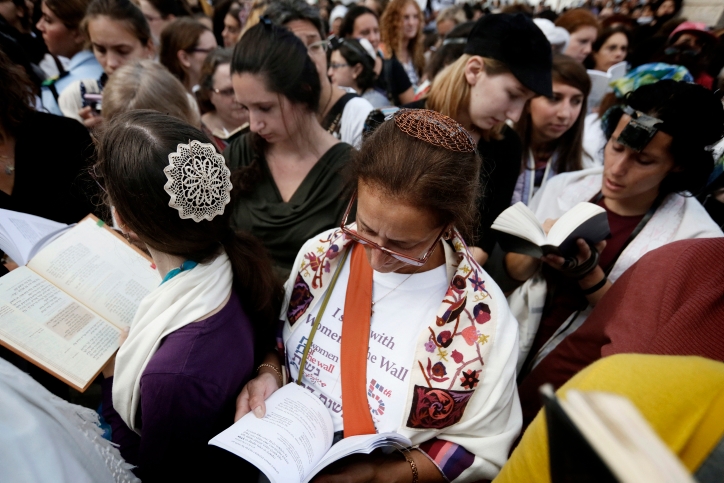JERUSALEM (JTA) – Scores of women gathered for a Women of the Wall service at the Western Wall with little police protection and minimal disruption from protesters.
Friday’s service, which drew 100 to 200 women, was the group’s calmest in at least six months. Women of the Wall, which gathers at Judaism’s holiest site for a women’s service at the beginning of each Jewish month, prayed in the women’s section with no physical barriers enclosing them.
The group scored a legal victory in court this year that allowed its members to pray without fear of arrest. In addition, Prime Minister Benjamin Netanyahu has convened a committee to forge a compromise between Women of the Wall and the haredi Orthodox leaders who want to retain exclusive control of the holy site.
These changes in the status quo sparked a backlash from Israel’s haredi Orthodox community, which turned out protesters en masse for several services in a row.
During those services, from May through August, Women of the Wall participants were barricaded behind a tight police cordon in various parts of the Western Wall plaza. Groups of haredi men yelled epithets and threw eggs, coffee and water at the women, while thousands of Orthodox girls, spurred by rabbis and activists, packed the women’s section of the plaza and prayed silently.
Leading up to Friday’s service, Western Wall Rabbi Shmuel Rabinowitz asked that the Orthodox girls not come to pray — a request that went unheeded. Thousands packed the plaza to participate in a joint service with a group in the men’s section, praying for the health of Sephardi sage Rabbi Ovadia Yosef, who has been hospitalized.
But in contrast to recent months, Women of the Wall prayed in the plaza with nothing separating the group from the Orthodox girls. A few police officers stood in the crowd but had no unrest to quell.
The only protests facing the Women of the Wall were intermittent screams from some girls. A few girls tried to shush Women of the Wall, to little avail.
JTA has documented Jewish history in real-time for over a century. Keep our journalism strong by joining us in supporting independent, award-winning reporting.






